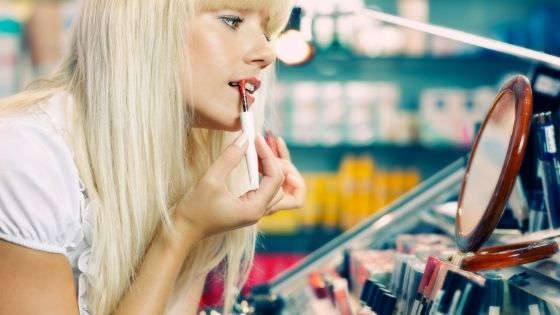Product safety is the most important thing a manufacturer has to take care of when it comes to cosmetics. Cosmetic manufacturers have the responsibility to make sure that their products are safe for consumers and it does not cause any harm to their skin or health.

Product quality determines brand credibility. The quality of the product builds the brand reputation. It is tough to build brand trust and loyalty, especially in the cosmetic industry. A single unsafe product can destroy brand trust and loyalty.
That is why cosmetic testing is essential. Manufacturers need to get it done to deliver safe products. The Food and Drug Administration (FDA) does not have the right to approve the cosmetic products and the ingredients used in making the cosmetic products before they sell them in the market.
The Food and Drug Administration has the right to take action against the cosmetic product manufacturer in the market if they have information to prove that the manufacturers do not follow the legal formalities or rules to ensure customer safety.
Depending on the nation, the rules and regulations for making a cosmetic product will change. For example, in the US, the Food and Drug Administration is not involved in conducting any specific tests. The manufactures are entirely responsible for the product and the consumer’s safety.
Whereas in the European nation, there are strict rules, and manufacturers have rules as per the Product Information File (PIF). Before selling their products, the manufacturers have to conduct a few tests such as microbiological tests, stability tests, toxicological tests, etc.
Cosmetic Testing
There are various cosmetic tests. The required tests depend upon the product category. Here are a few standard tests that ensure that cosmetic products are safe for people to use:
1. Microbiological Testing –
Each cosmetic product is made up of various microorganisms that can harm the consumer resulting in skin diseases, rashes, and many other issues if they use it. In some cases, users end up adding bacteria while using cosmetic products and make it very dangerous.
This particular testing method helps a manufacturer to ensure that it is free from harmful microorganisms’ growth. Bacteria, fungi, and yeast are used in testing the sample products. A sample of the product is sent to a Challenge test known as Preservative Effectiveness Test (PET).
This test is done to identify the risk of harmful microorganisms growth in the cosmetic product that can harm the consumers. It is compulsory to get the product tested to complete the Product Information File (PIF) process if the manufacturer wants to sell their products to European Nations.
2. Stability Testing –
The manufacturing process of the cosmetic product will be altered so that it does not harm any of the users. With a Stability test, the manufacturers can ensure that the product does not become dangerous from the manufacturing day to expiry day.
If they can pass the test, it can be sure that the product maintains its physical aspect and function and does not lose its chemical quality. The product sample is tested under real-life situations to ensure the product is stable and does not lose its physical properties such as color, odor, or any other physical aspect.
With the results, the manufacturers can evaluate the product quality and product duration. It is mandatory to get the product tested to complete the Product Information File (PIF) process. Without completing this process the manufacturers can not sell their products to the European Nations.
3. Safety Testing –
Safety testing includes a toxicology test. This test aims to make sure that the raw materials used in the manufacturing process and the end product are not harmful to the consumers.
With the help of these test results, a manufacturer can understand that the mixtures or the raw materials used in the product are safe for a consumer to use or not. Few other tests are done to know the effect of the product on the consumer’s skin and eye, such as skin irritation, corrosion, penetration, and sensitization, eye irritation.
If manufacturers want to sell their products in the European Nations then they need to complete the Product Information File (PIF) process. Without completing this process the manufacturer does not have any rights to sell their products in the European Nations.
Conclusion
Every manufacturer must get their products tested. The above discussed are few standard testing methods; there are many more tests that a manufacturer has to do. For every business, customer safety should be the priority; that is why every manufacturer needs to get their cosmetic products tested before entering the market.
